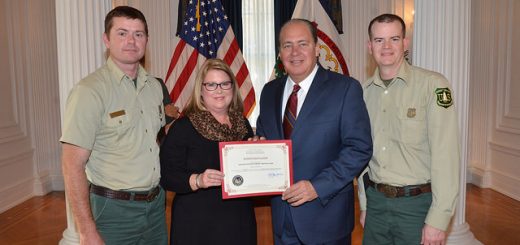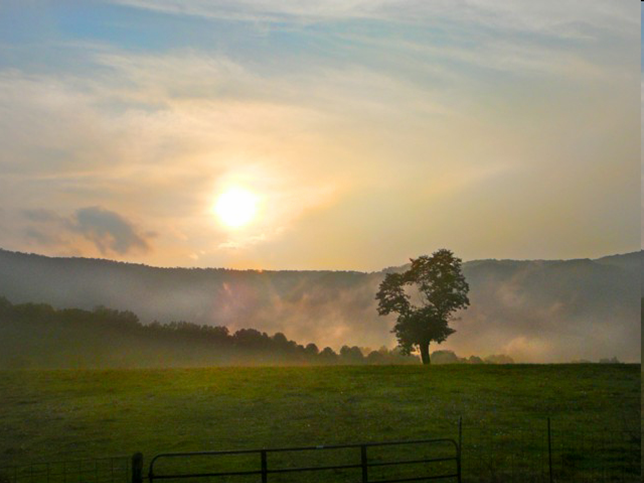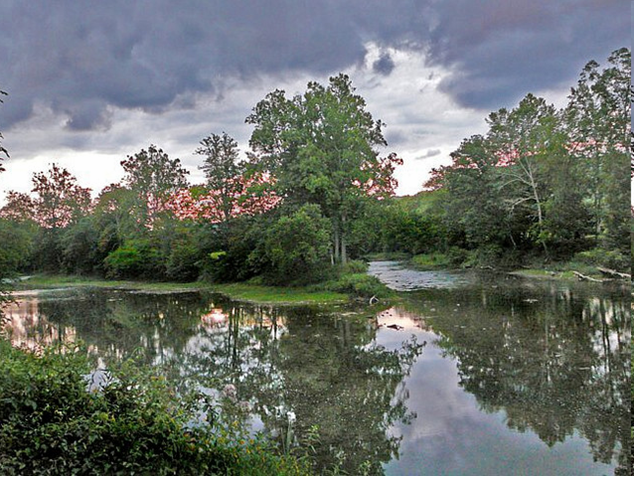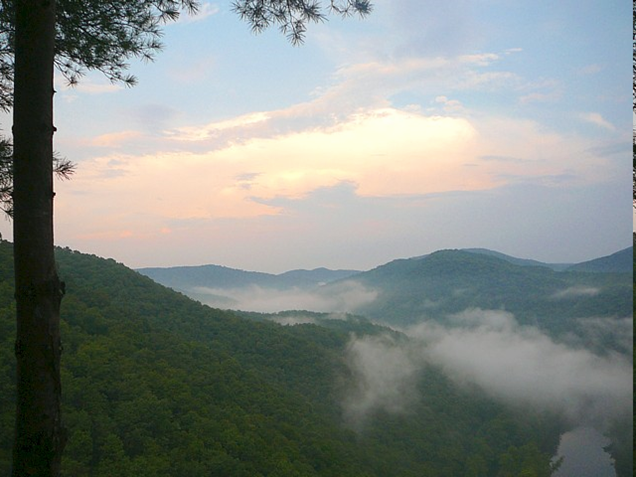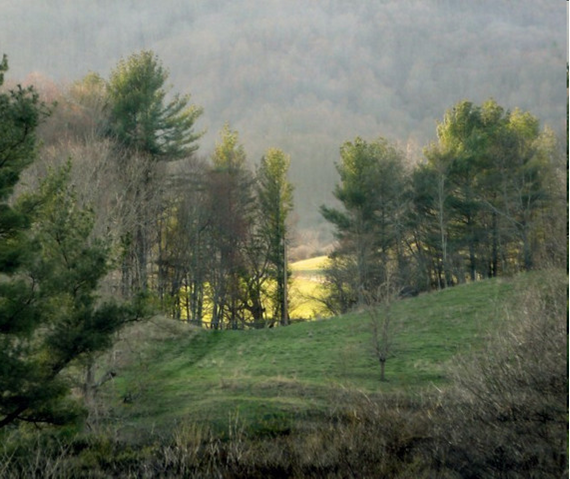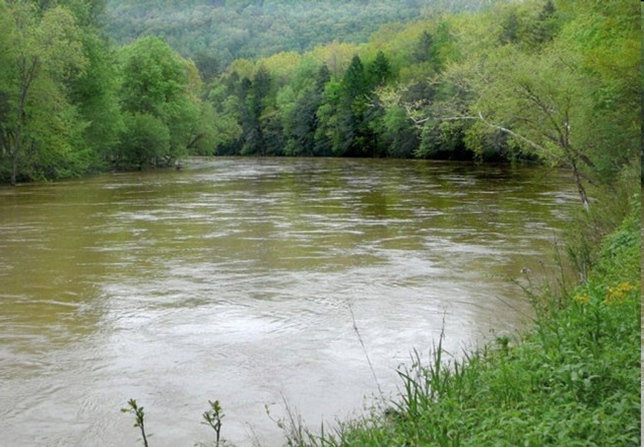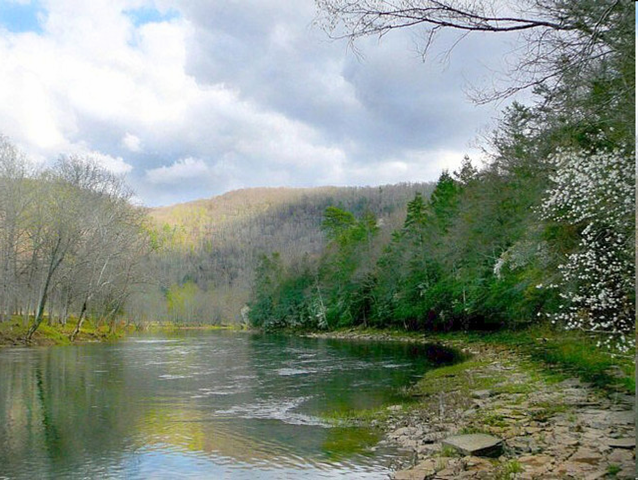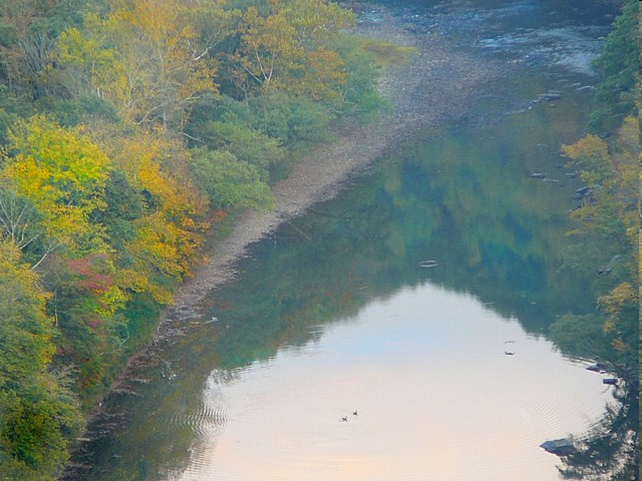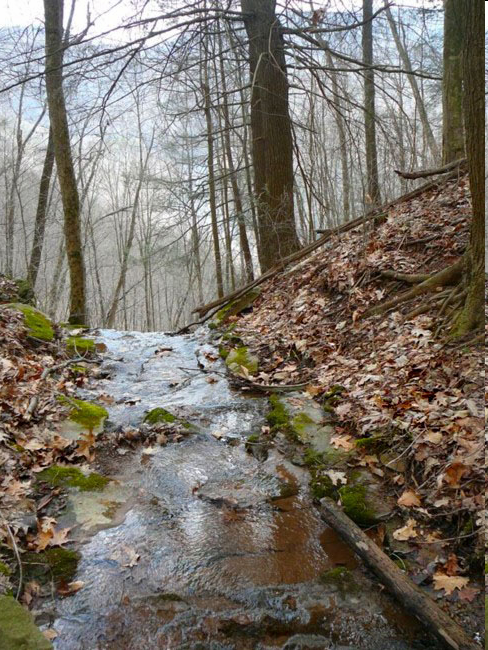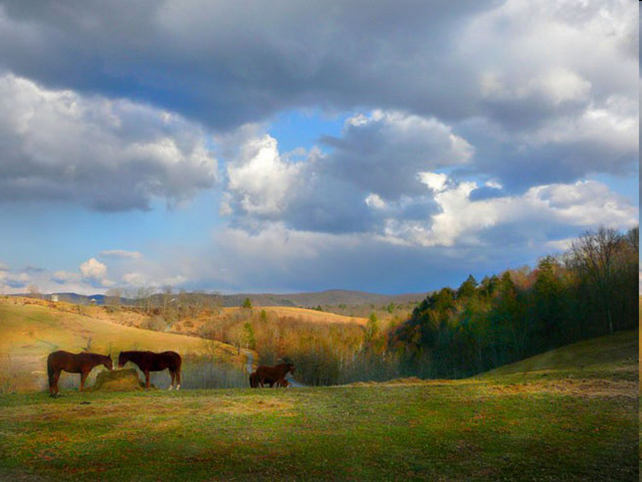1 tree-sitter removed from Mountain Valley Pipeline protest site
Laurence Hammack Mar 23, 2021
ELLISTON — One of two Mountain Valley Pipeline protesters was removed from a treetop blockade Tuesday by the long arm of the law, which was made even longer with help from a towering construction crane.
Approaching the tree-sitters from above in a day-long operation, police were able to safely extract a protester from a tree stand as darkness fell on the mountains of eastern Montgomery County.
“They got her on the ground,” Sara Bohn, a member of the county board of supervisors who was allowed to witness the operation, wrote in a 6:30 p.m. text.
Efforts to remove a second tree-sitter were continuing.
Early Tuesday morning, a crane was parked on Yellow Finch Lane, at the bottom of a steep slope where the activists waited uphill in tree stands about 50 feet from the ground. The crane’s boom was extended above the trees, and a bucket with two state police officers inside was then lowered to within arm’s reach.
Bohn said police threw what appeared to be blankets and buckets from the wooden platform to the ground. The officers seemed to be talking to the occupant of the tree stand, Bohn said, but she could not hear what was said.
The tree-sitter was locked to a device called a “sleeping dragon,” which secured the protester to the tree stand, according to Capt. Brian Wright of the Montgomery County Sheriff’s Office.
After cutting through the metal lockbox, police lowered the tree-sitter to the ground in the basket. Medics found that the tree-sitter was unharmed, and the protester was rushed to the magistrate’s office in Christiansburg, Wright said.
Late Tuesday, the tree-sitter was identified as Claire Marian Fiocco, 23, from Dorset, Vermont.
Fiocco was charged with interfering with the property rights of Mountain Valley, which has an easement that is currently blocked by the tree-sitters. The defendant was being held without bail Tuesday night, the sheriff’s office said.
Crews planned to remain at the tree-sit overnight and continue negotiations with the second tree-sitter, Wright said. The second protester hasn’t been publicly identified by authorities.
“They’ve been exceptionally careful, and they seem to be taking all of the precautions to make this a safe operation,” Bohn said from her cellphone late Tuesday afternoon, from a spot about 100 feet from the tree-sits.
For more than two years, the protesters have blocked construction workers from cutting some of the last remaining trees along the controversial natural gas pipeline’s 303-mile route through West Virginia and Virginia.
The tree stands in a white pine and a chestnut oak have been occupied, mostly by anonymous activists, since Sept. 5, 2018 — making it the longest continuing blockade of a natural gas pipeline east of the Mississippi River, according to Appalachians Against Pipelines.
Last November, at the request of Mountain Valley, a circuit court judge issued an injunction that ordered the tree-sitters down and authorized a forced removal if they refused his order.
After months of planning, Virginia State Police and Montgomery County sheriff’s deputies finally made their move.
The first hint of action came shortly before 9 a.m., when one of the tree-sitters posted a video of the Facebook page of Appalachians Against Pipelines. The sound of chainsaws could be heard, and police officers were visible in the forest.
“We’ve got cops down here, and cops over here,” the tree-sitter says in a voice-over.
“They’re bringing in equipment over here, but it looks like they have to do some road work first.”
Police and Mountain Valley workers spent the morning positioning the crane and clearing trees. Once the stage was set, they began negotiations in the hopes that the protesters would come down voluntarily, Wright said.
“The area is extremely steep and difficult to access,” he wrote in an email. “Crews will continue to work slowly and steadily in order to maintain a safe environment for everyone on scene.”
Police cut off public access to the tree-sits, blocking the road about a mile from where the extraction efforts were underway.
A group of protesters gathered in the closest available space — a parking lot of a vacant antique store on U.S. 460 just east of Elliston — and waved “No Pipeline” posters at passing motorists. Some honked their horns in support.
“The least we can do is come out and show some solidarity,” said Ben James of Roanoke County, who joined more than a dozen people who gathered at the site for much of the day.
News media and legal observers with the National Lawyers Guild, who have been monitoring the tree-sits since November, were not allowed access to the scene. That was due to logistical and safety issues, according to the sheriff’s office.
Sen. John Edwards, D-Roanoke, questioned that in a written statement. “The freedom of the press is fundamental to a healthy democracy, and the media should be allowed to observe these events,” he said.
Later in the day, legal observers were allowed to witness the extraction efforts, Wright said. A Roanoke Times photographer who attempted to accompany a resident, at his invitation, to his home near the tree-sits was turned back at a police blockade.
Mountain Valley will foot the bill — at least initially — for the expenses Montgomery County incurs for the removal activity, according to a Jan. 25 order from Montgomery County Circuit Court Judge Robert Turk.
However, the order also says that Mountain Valley can try to recover its expenses from the tree-sitters and any others violating the court’s injunction to leave the pipeline right of way.
Turk, who had ordered the tree-sitters to leave last fall, set up a process for paying the removal expenses that starts with the county submitting a list of costs to the court. Once the court approves the list, Mountain Valley must pay the county, the order says. It will then be up to the company to pursue the tree-sitters.
The tree-sits have marked perhaps the most high-profile opposition to the pipeline, which critics say will scar the scenic landscape of Southwest Virginia, pollute its streams and endanger its wildlife.
Since construction began in February 2018, environmental regulators have cited Mountain Valley hundreds of times with violating erosion and sediment control regulations.
Joining the crowd Tuesday morning was Don Jones, whose Giles County family farm will be bisected by the pipeline. Mountain Valley used its power of eminent domain to take an easement through Jones’s land three years ago.
The pipeline remains unburied on his land, and Jones said he still has hope that the $6 billion project can be stopped. He senses change at the Federal Energy Regulatory Commission, which regulates natural gas pipelines, now that it will soon be coming under Democratic control.
“We’re hoping that they’re starting to listen to the citizens,” Jones said. “You would think that a federal agency would be for the people, but it looks like they’re representing a big company that’s in it for a profit.”
Staff writer Mike Gangloff contributed information to this report.
ORIGINAL STORY HERE


